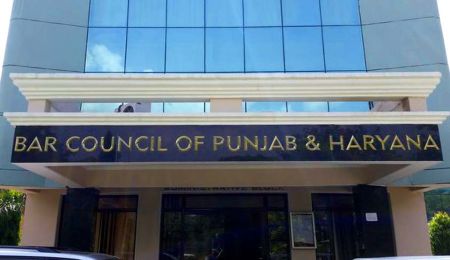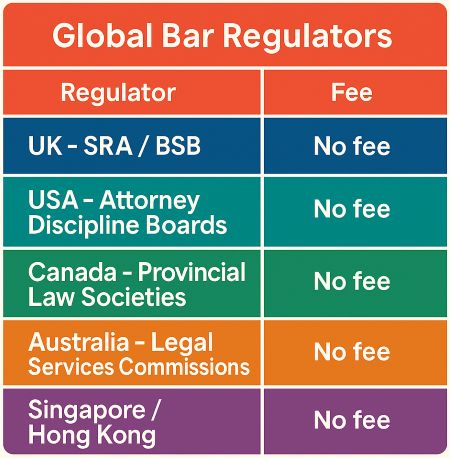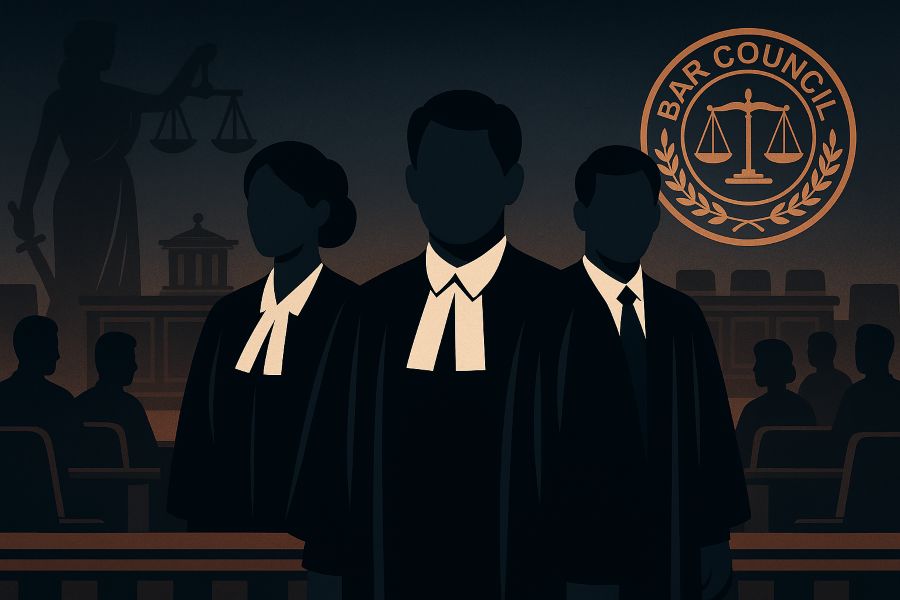A Fee That Raises More Questions Than Answers

Does the Bar Council of Punjab & Haryana act as a watchdog for citizens — or is it quietly shielding lawyers from scrutiny? That question has come to the forefront after Punjab Today discovered that citizens seeking to file a professional misconduct complaint against an advocate under Section 35 of the Advocates Act, 1961 are being asked to first pay ₹6,500.
This amount, comprising ₹5,000 as a “complaint fee” and ₹1,500 as a “processing fee,” must be deposited before a complaint is even acknowledged.
Legal Black Hole: No Law, No Reply

Bar Council Of Punjab & Haryana
To verify this, Punjab Today contacted the Bar Council of Punjab & Haryana, the Bar Council of India, and the Union Ministry of Law & Justice. Each authority was requested to explain the legal basis for this fee, the reason for imposing it, and why the Council’s practices diverge from other professional regulators in India and abroad.
Despite clear and specific questions, none of the authorities responded. Their silence only deepens the concern surrounding a fee that already appears to lack transparency, justification, or statutory backing.
What the Law Actually Says
Section 35 of the Advocates Act is unmistakably clear. When a State Bar Council receives information or has reason to believe that an advocate has been guilty of misconduct, it must refer the case to its disciplinary committee. The law does not authorise, mention or even imply that citizens must pay to initiate this process.
Legal scholars point out that statutory bodies cannot create new charges unless expressly permitted by legislation. A disciplinary mechanism meant to protect the public cannot be converted into a paywalled entry point.
A Constitutional Red Flag
 The constitutional implications are equally troubling. A mandatory fee for lodging a complaint creates financial barriers that strike at the heart of Articles 14 and 21 of the Constitution, which guarantee equality before law and access to justice. Article 39-A obligates the State to ensure equal justice and free legal aid. Imposing a charge on complainants — many of whom approach the regulator after being wronged — contradicts the spirit of these protections.
The constitutional implications are equally troubling. A mandatory fee for lodging a complaint creates financial barriers that strike at the heart of Articles 14 and 21 of the Constitution, which guarantee equality before law and access to justice. Article 39-A obligates the State to ensure equal justice and free legal aid. Imposing a charge on complainants — many of whom approach the regulator after being wronged — contradicts the spirit of these protections.
Lawyers and activists warn that such fees silence genuine complainants, discourage victims of misconduct, and erode faith in legal ethics.
India — An Outlier Among Its Own Regulators
The situation becomes even more anomalous when examined within India itself. No other major professional regulator in the country charges citizens for reporting misconduct.
 Chartered accountants (ICAI), company secretaries (ICSI), cost accountants (ICMAI), doctors, dentists and nurses can all be reported without paying a single rupee.
Chartered accountants (ICAI), company secretaries (ICSI), cost accountants (ICMAI), doctors, dentists and nurses can all be reported without paying a single rupee.
Their disciplinary systems treat public complaints as integral to maintaining ethics — not as a revenue stream.
Against this backdrop, the Punjab Bar Council’s ₹6,500 fee is an exception so stark that it sits at odds with the regulatory culture across India’s professional landscape.
The International Picture — India Stands Alone
The contrast grows sharper when placed on the global stage.

Internationally, legal regulators overwhelmingly treat misconduct complaints as a fundamental public right.
Bodies such as the Solicitors Regulation Authority (SRA) and Bar Standards Board (BSB) in the UK, state attorney discipline boards in the US, provincial law societies in Canada, and legal services commissions in Australia, Singapore and Hong Kong impose no fee whatsoever on complainants.
India now risks standing out — and not in a favourable way — as one of the few democracies where citizens must pay a significant amount simply to report alleged misconduct by a lawyer.
Protecting the Powerful, Silencing the Ordinary
This raises an uncomfortable but unavoidable question: Who does this fee protect? Certainly not the public.
Observers argue that such financial hurdles serve only to insulate advocates from complaints, reduce accountability, and convert the regulator into a protector rather than a watchdog. Those who cannot afford to pay simply remain unheard. A regulatory structure that restricts access in this manner risks losing its legitimacy.
A Needed Course Correction
If Bar Councils continue to demand fees without clear statutory authority, the issue may soon invite judicial intervention. Courts in India have consistently struck down measures that obstruct access to justice or discriminate between citizens based on financial capability.
 It is difficult to imagine a court upholding a fee that prevents citizens from reporting misconduct by officers of the court.
It is difficult to imagine a court upholding a fee that prevents citizens from reporting misconduct by officers of the court.
It is time for urgent introspection and reform. Regulators exist to protect the public, uphold ethics, and ensure accountability — not to erect financial barriers.
A zero-fee complaint system, adopted uniformly across the country, would be the minimum step required to restore public confidence. The Bar Council must also publicly disclose any legal basis, if any exists, for such charges.
The Fight for Justice Begins With Access to Justice
Punjab Today invites advocates, Bar Council members, legal scholars, citizens with experience in disciplinary matters, and other concerned voices to share their views, experiences and testimonies at punjabtodaynews@gmail.com. Continued reporting, public engagement and, if necessary, judicial review will be essential to ensure that the legal profession remains accountable, transparent and worthy of public trust. ![]()
________
Also Read:
Disclaimer : PunjabTodayNews.com and other platforms of the Punjab Today group strive to include views and opinions from across the entire spectrum, but by no means do we agree with everything we publish. Our efforts and editorial choices consistently underscore our authors’ right to the freedom of speech. However, it should be clear to all readers that individual authors are responsible for the information, ideas or opinions in their articles, and very often, these do not reflect the views of PunjabTodayNews.com or other platforms of the group. Punjab Today does not assume any responsibility or liability for the views of authors whose work appears here.
Punjab Today believes in serious, engaging, narrative journalism at a time when mainstream media houses seem to have given up on long-form writing and news television has blurred or altogether erased the lines between news and slapstick entertainment. We at Punjab Today believe that readers such as yourself appreciate cerebral journalism, and would like you to hold us against the best international industry standards. Brickbats are welcome even more than bouquets, though an occasional pat on the back is always encouraging. Good journalism can be a lifeline in these uncertain times worldwide. You can support us in myriad ways. To begin with, by spreading word about us and forwarding this reportage. Stay engaged.
— Team PT
